SunnyHills Bakery: Modest Brilliance
Chang Chiung-fang, / photos SunnyHills / tr. by Scott Williams
October 2016
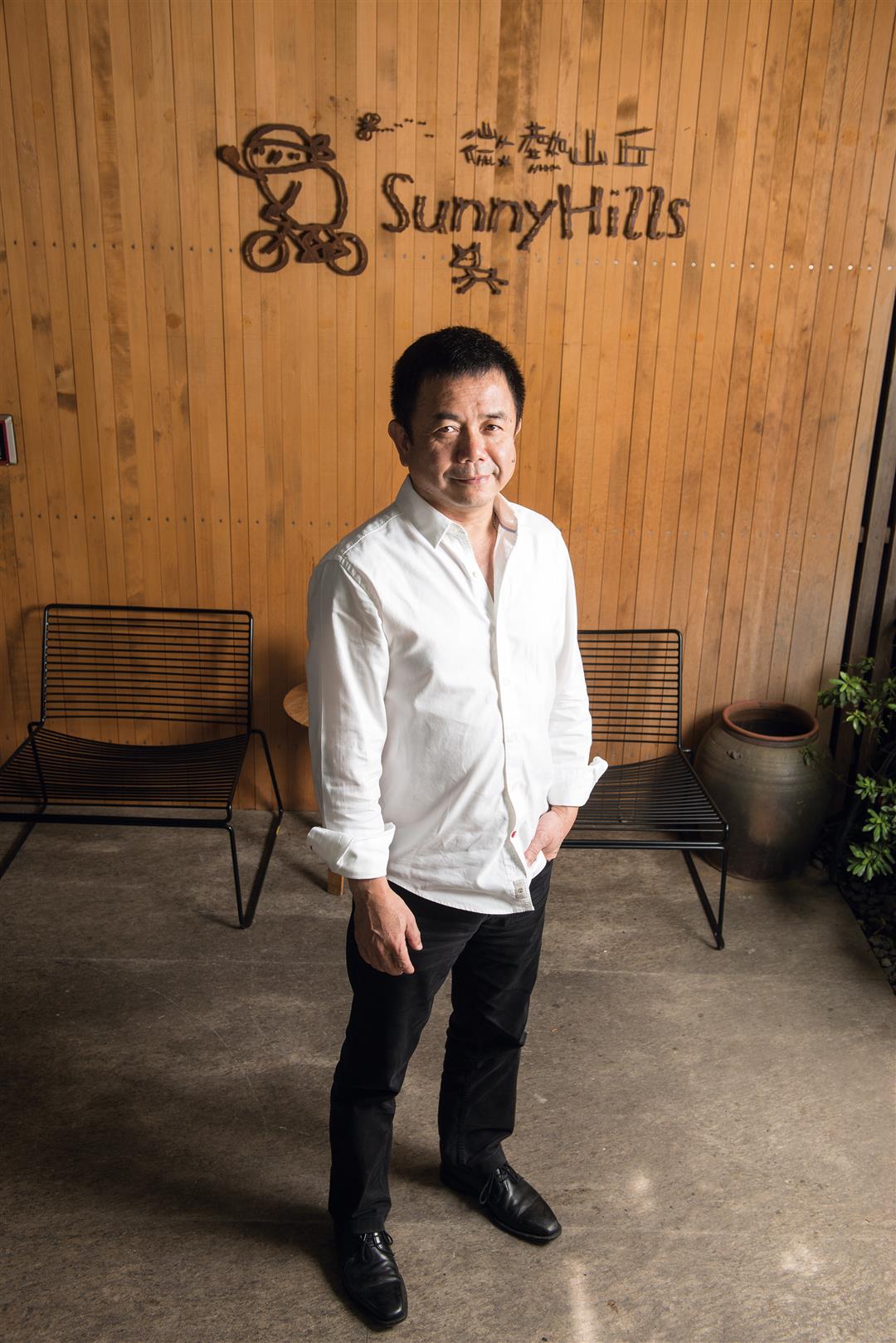
Established in the midst of the global financial crisis of 2008, Nantou’s SunnyHills company has grown into a wildly successful pineapple-cake business. More, the company has built a trusted agricultural brand around its cakes and business practices, and rekindled interest in the Bagua Plateau area where it got its start.
Nearly eight years after its founding, the SunnyHills bakery has launched a second product with strong ties to Taiwan: castella, a light, honey-flavored sponge cake. Having already upended market expectations by making pineapple cakes using a local pineapple variety, the company did so again with its approach to castella.
Company founder Micheal Sheu says that SunnyHills is continuing to develop other new products, and is also planning to build a new corporate headquarters in Nantou. “We want it to highlight Taiwan as well as the brand,” he says.
SunnyHills has grown slowly and steadily from its original Nantou location, first following County Highway 139 out of the mountains, then stretching north and south to Taipei, Kaohsiung, and Taoyuan International Airport, and more recently expanding abroad to Singapore, Shanghai, Hong Kong, and Japan. The company’s expansion has powered a steady increase in its sales, which reached 22 million pineapple cakes and nearly NT$1 billion in revenues in 2015.
For all that SunnyHills’ four founders may consider the company’s performance a “lovely surprise,” it was no fluke. Jessica Yang, president of Concento Marketing Services Company, which has handled SunnyHills’ marketing for the last seven years, says that the company has never wavered from its core vision of producing delicious, high-quality, emotionally resonant products. “Changing our ideals would be a betrayal of our principles,” says Sheu. The company also works hard to incorporate new developments while maintaining this commitment to quality. “No brand ever rests easy. You have to change with the times or the market will leave you behind.”
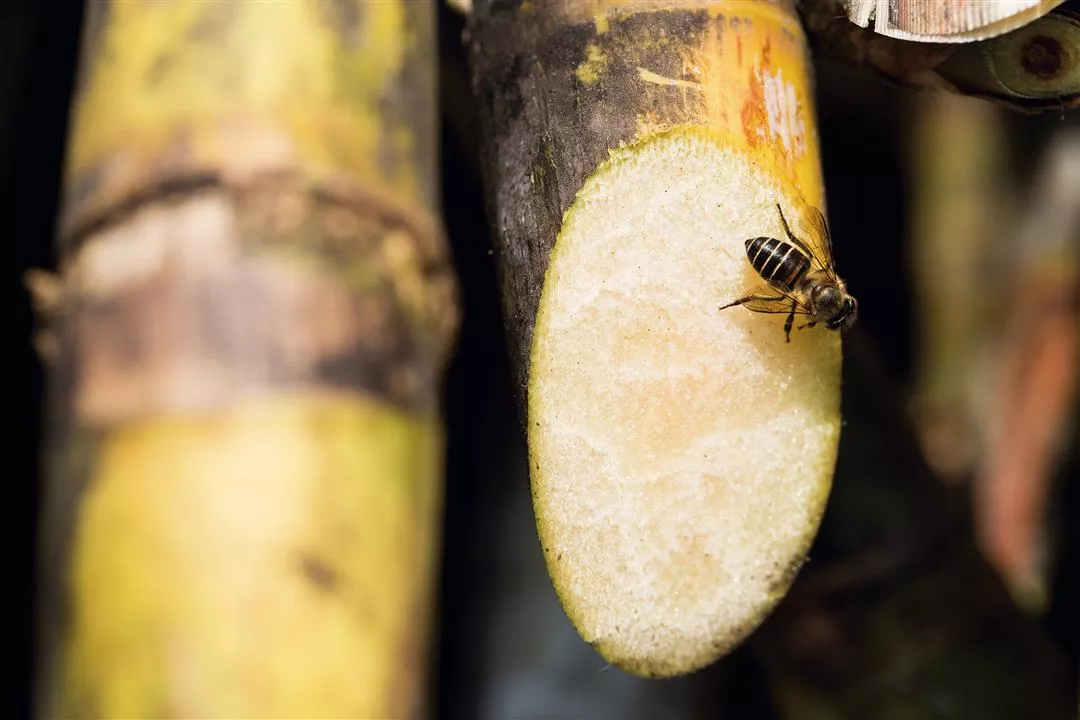
SunnyHills seeks the highest quality ingredients for its products. To that end, it hires farmers to grow a local variety of pineapples for its pineapple cakes and sugarcane for its castellas.
Honeycomb cut
SunnyHills introduced its castella in the summer of 2016 after spending two years on its development.
Sheu explains that SunnyHills developed several products over the last two years, but that some didn’t fit the company’s brand image, others didn’t have a particular connection to Taiwan, and still others involved hard-to-manage processes or ingredients. In the end, they chose to move forward with the castella that Lan Shazhong, Sheu’s uncle and a SunnyHills co-founder, excelled at making and had long wanted to produce.
People have strong ideas about what constitutes a traditional castella, and the company put a lot of thought into doing something different with the dessert. “Before we announced the new product, someone asked me whether I had confidence in it. I really didn’t know.” Sheu explains that flavor and mouthfeel are subjective and difficult to get just right. “We worked very hard and very conscientiously, so I just don’t care whether the market ultimately accepts it.”
SunnyHills’ castellas differ from the others on the market in both shape and mouthfeel. The honeycomb-shaped pieces that the cakes are precut into echo the honey that they are baked with and are also easier to pick up and eat. The company also eschewed the “sweet and fine” mouthfeel of typical castellas.
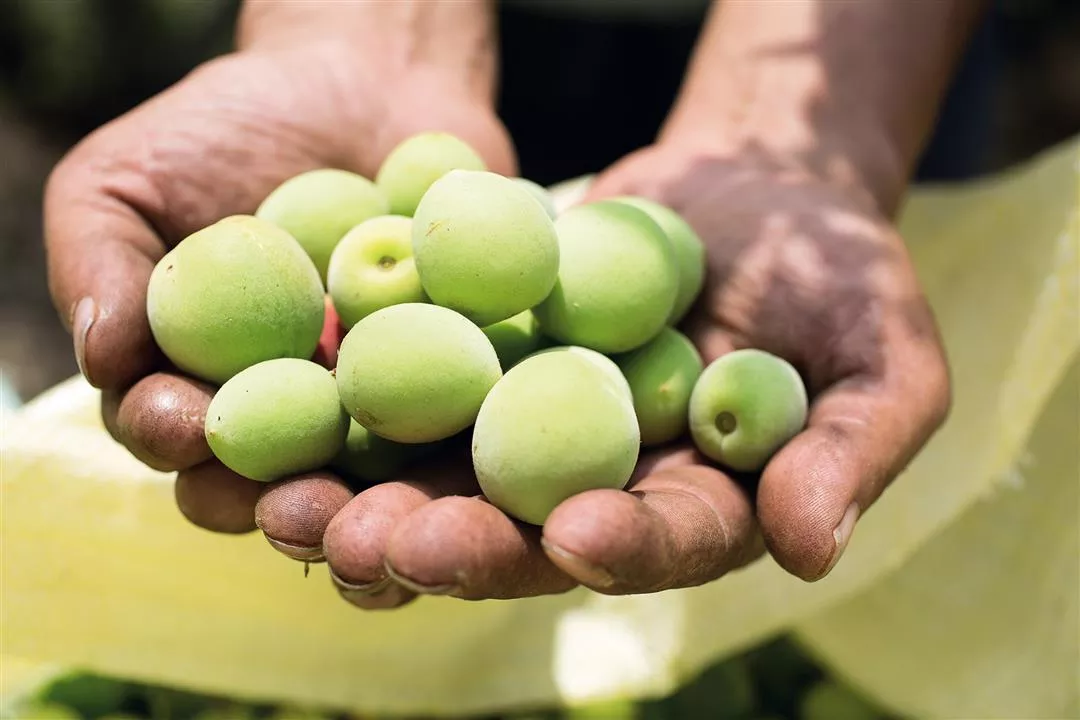
The plum sauce used in SunnyHills’ castellas is made from plums grown in Kaohsiung’s Xiaolin Village, and is aged for ten years.
Hand-picked ingredients
SunnyHills’ first step in ensuring the quality of its products is being selective about the ingredients. It uses Japanese flour, which is more clearly graded, for its castellas, just as it does with its pineapple cakes. All of the castellas’ other ingredients are locally sourced: genuine longan honey, healthy SunnyEggs from Long Chung Farm in Changhua, cane sugar from Tainan’s Yujing District, and plum sauce from Kaohsiung’s Xiaolin Village.
The sugar and aged plum sauce took no small effort to obtain.
To get the pure cane sugar it wanted, SunnyHills had to sign Yujing farmers to sugar-cane production contracts, then partner with a biotech firm to extract the sugar using a membrane filtration process. The plum sauce has been aged for ten years, giving it a rich and intense flavor that adds a decade’s depth to the freshly baked castellas.
In another pioneering move, the company decided to use a waterjet to cut the cakes. The high-pressure waterjet resolves difficulties arising from cutting the cakes in a honeycomb pattern, and reduces the adhesion and contamination problems associated with ordinary metal blades.
With this level of attention to detail, it’s no wonder that Sheu has boldly declared that while it is relatively easy to replicate SunnyHills’ pineapple cakes, it is very hard to match their castellas.
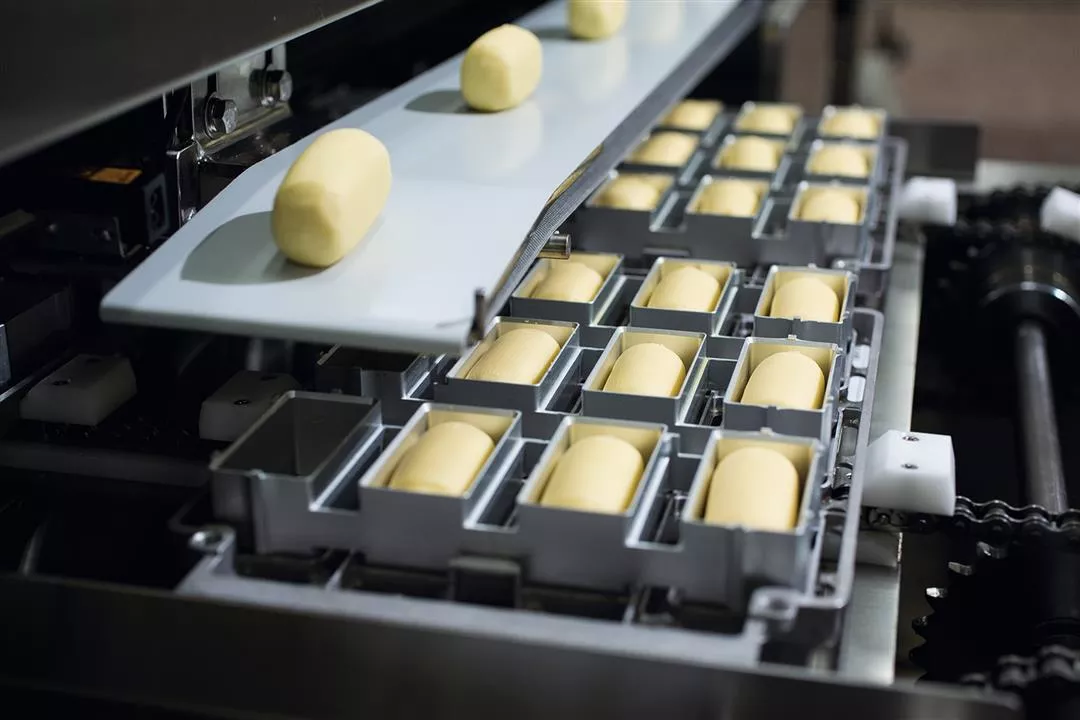
Unlike many companies, SunnyHills uses ingredients, standards and packaging that highlight the character of its brand.
Connected to the land
Moving forward, Sheu hopes to launch new products every two or three years. “Developing new products isn’t simply a matter of craft. The difficult part is defining them in ways that connect them to the land and fit within the spirit of the brand.”
To that end, Sheu has begun looking outside the company for help in taking it to the next level. He hopes that SunnyHills can learn from famous foreign pastry chefs, and that it can digest and analyze their recipes and techniques, then incorporate them into the Taiwanese repertoire to develop new products that people want. “The skills that chefs hone and refine over decades are incredibly valuable.”
Sheu spent years in the tech industry prior to co-founding SunnyHills and started the company with no concept of how to manage a brand. Even so, he had a feeling that they would succeed. “Not many people in Taiwan were thinking about how to manage a brand. I was sure that we could stand out just by running the company well.”
In recent years, Sheu has turned the company’s moneymaking operations over to a professional manager, while putting most of his own efforts into brand management. “It’s more fun,” he says, explaining that he finds it more fulfilling. “You can develop a brand over the long term, then pass it on.”
On the strong recommendation of consultant Xie Zhenshun, SunnyHills has committed itself to the idea of “differentiation.” As a result, SunnyHills has never thought “inside the box” on anything, whether the choosing of the company name itself, or in its production, packaging, and marketing.
The company distributes its products only through its own stores, runs no ads, and doesn’t partner with travel agencies to bring in tourists. Instead, it has invented a system of word-of-mouth marketing built around greeting customers with tea: it serves every visitor to one of its shops a cup of tea and a pineapple cake, regardless of whether or how much that person might be buying. Ever attentive to details, Sheu wanted the company’s white porcelain teacups to be exceptional too, and hired a Japanese artist to throw, glaze and fire each one.
“Brands have to have a style of their own,” says Sheu. He goes on to observe that even though being different isn’t easy, you have to innovate because consumers expect something surprising and new.
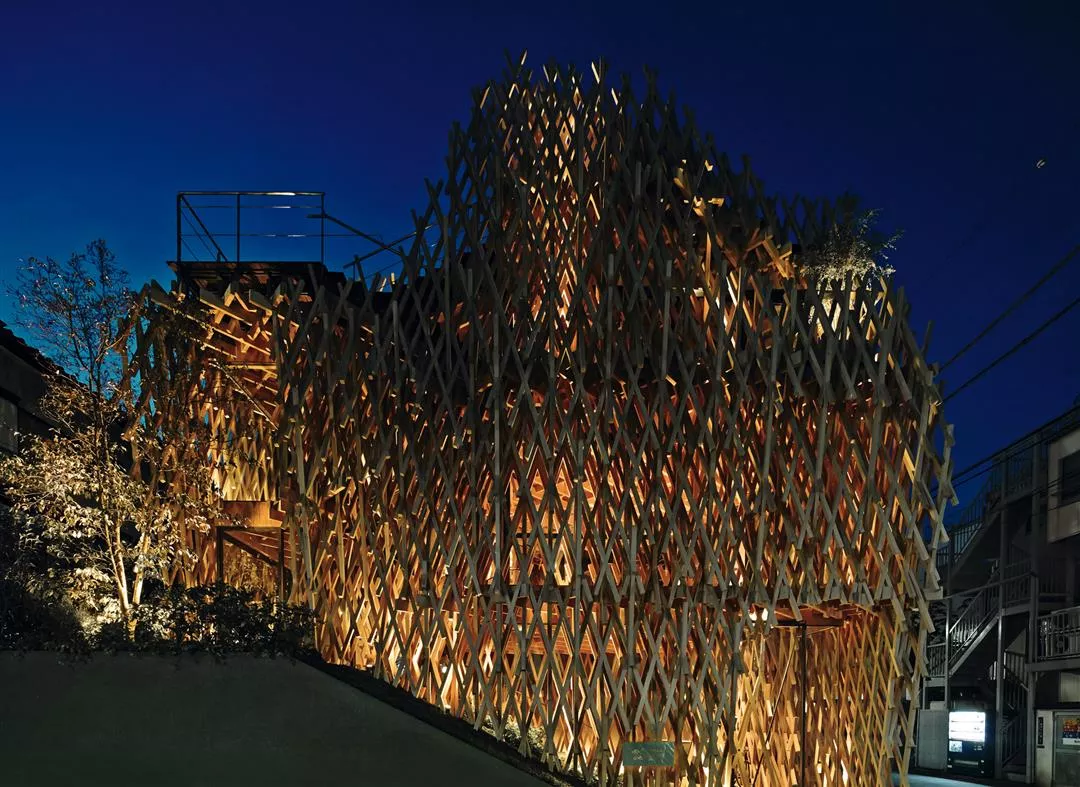
SunnyHills’ shops reflect the brilliance hiding beneath the brand’s unassuming style. The picture shows a SunnyHills shop on Tokyo’s Omotesando boulevard.
From sunny to scintillating
Unwilling to limit itself to Taiwan, SunnyHills began planning to expand abroad almost at its inception. Although income from the company’s overseas outlets has grown in recent years, and now accounts for roughly 20% of revenues, Sheu feels there’s still more work to do.
He says that SunnyHills’ first overseas location in Singapore enjoyed a leg up by being located in the renowned Raffles Hotel. And its Kendo-Kuma-designed Japanese location on Tokyo’s Omotesando boulevard represented a reinterpretation of SunnyHills’ spirit from a Japanese perspective. “But something was missing.” Sheu says that the lack was even more apparent when he visited the company’s overseas outlets, particularly when he contrasted the feeling of their stores with the strong crafts focus and deep cultural roots of old Japanese shops. “We still have so much to learn.” He says that, lacking a century of history, SunnyHills can only do its best to add depth to its endeavors.
In the coming years, Sheu plans to consolidate SunnyHills’ production facilities on a pretty hillside within Nantou’s Wanglai Industrial Park to create a corporate “home” for the business.
“The SunnyHills home will include flowers and trees and grass on the grounds, as well as a few rustic stoves to cook longans. Doesn’t that paint a pretty picture!” He’s talked about the park so much, it has already taken shape in his mind.
Just as you might enjoy a bite of pineapple cake or piece of honey cake, you can quietly delight in the spectacle of this Taiwanese agricultural brand brightening from merely sunny to scintillating!
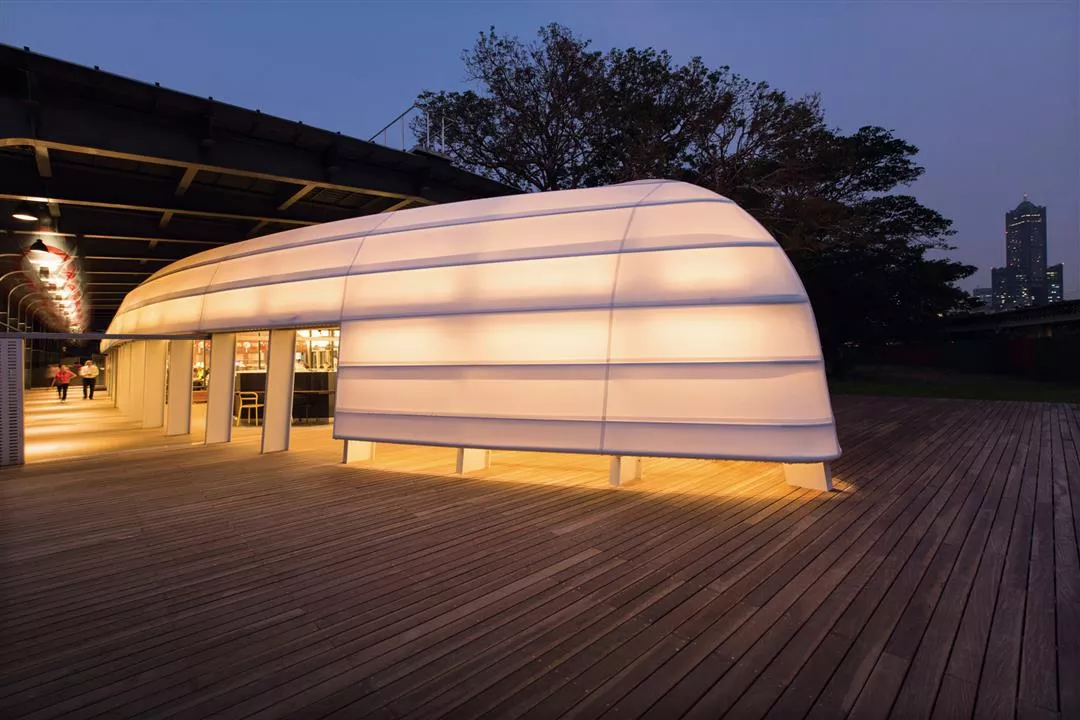
SunnyHills’ shops reflect the brilliance hiding beneath the brand’s unassuming style. The picture shows a SunnyHills shop in Kaohsiung’s Pier 2 Arts Center.
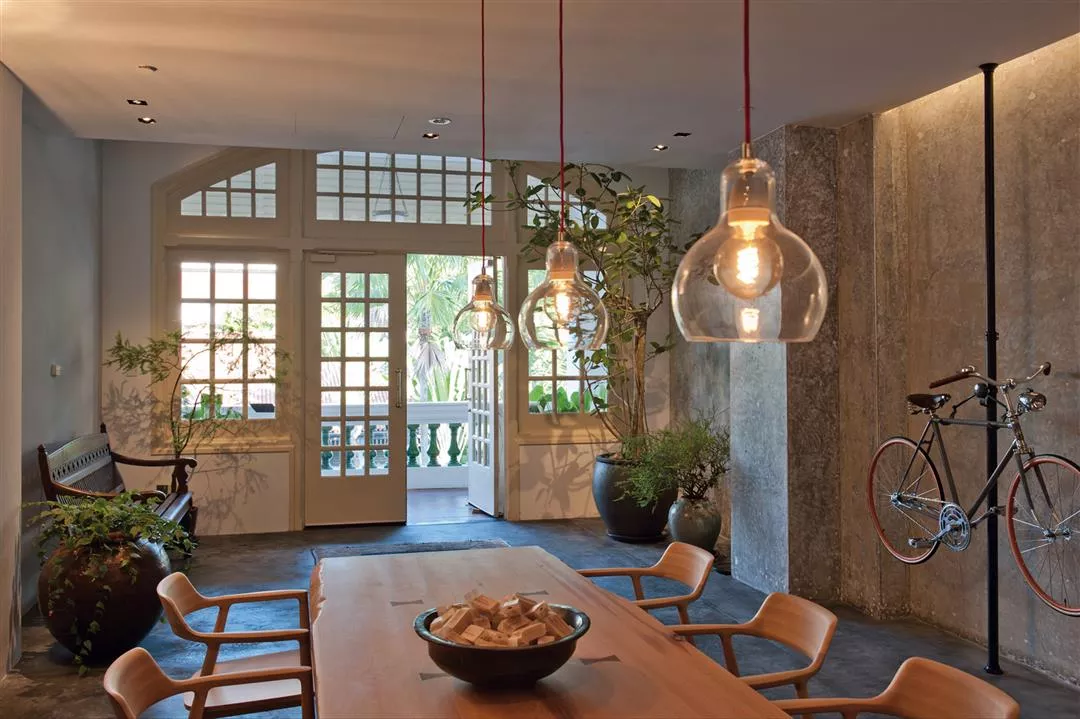
SunnyHills’ shops reflect the brilliance hiding beneath the brand’s unassuming style. The picture shows a SunnyHills shop at the Raffles Hotel in Singapore.
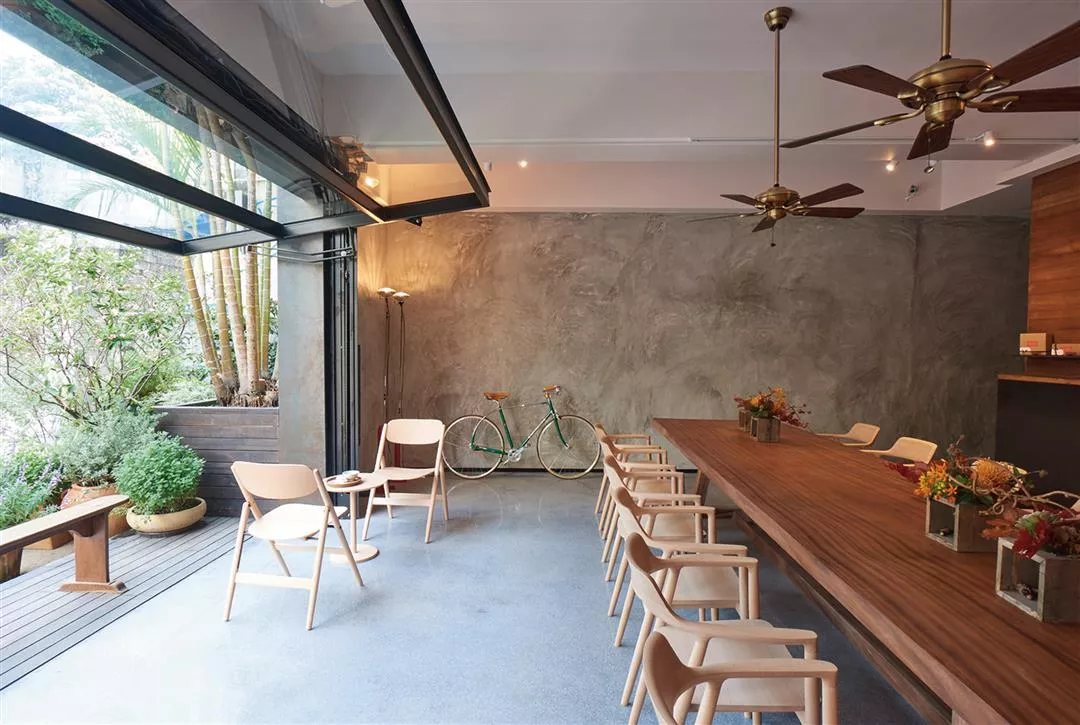
SunnyHills’ shops reflect the brilliance hiding beneath the brand’s unassuming style. The picture shows a SunnyHills shop in the Mid-Levels area of Hong Kong.
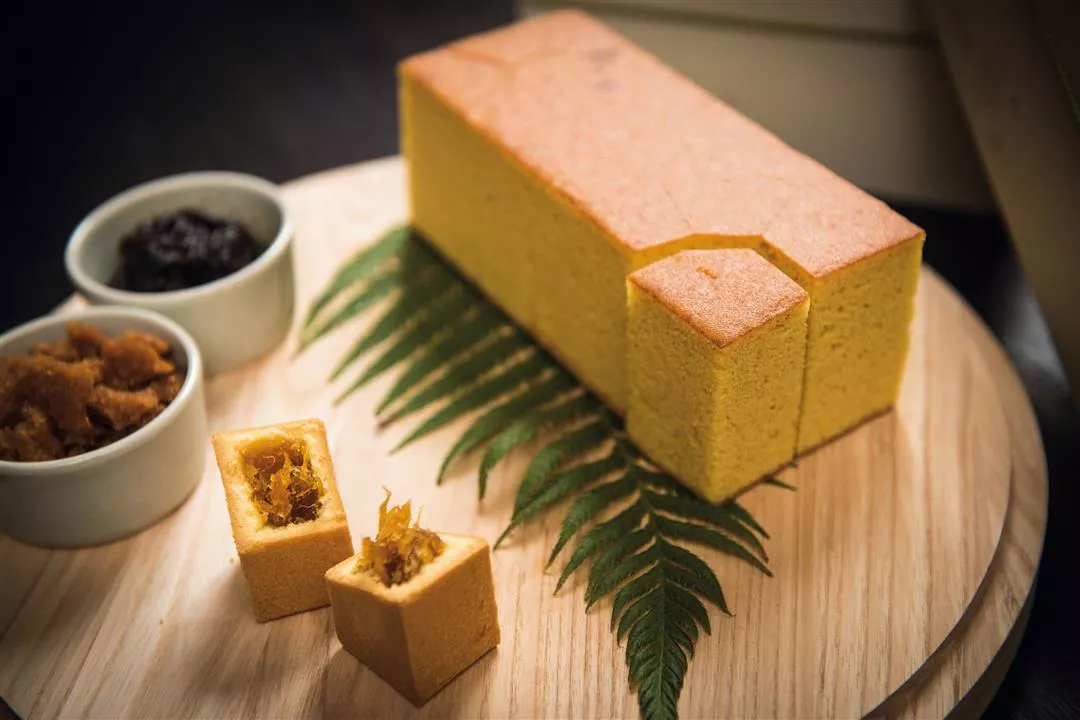
After selling nothing but pineapple cakes for nearly eight years, SunnyHills has now introduced a second product: the honey-flavored cakes known as castellas. (photo by Chuang Kung-ju)
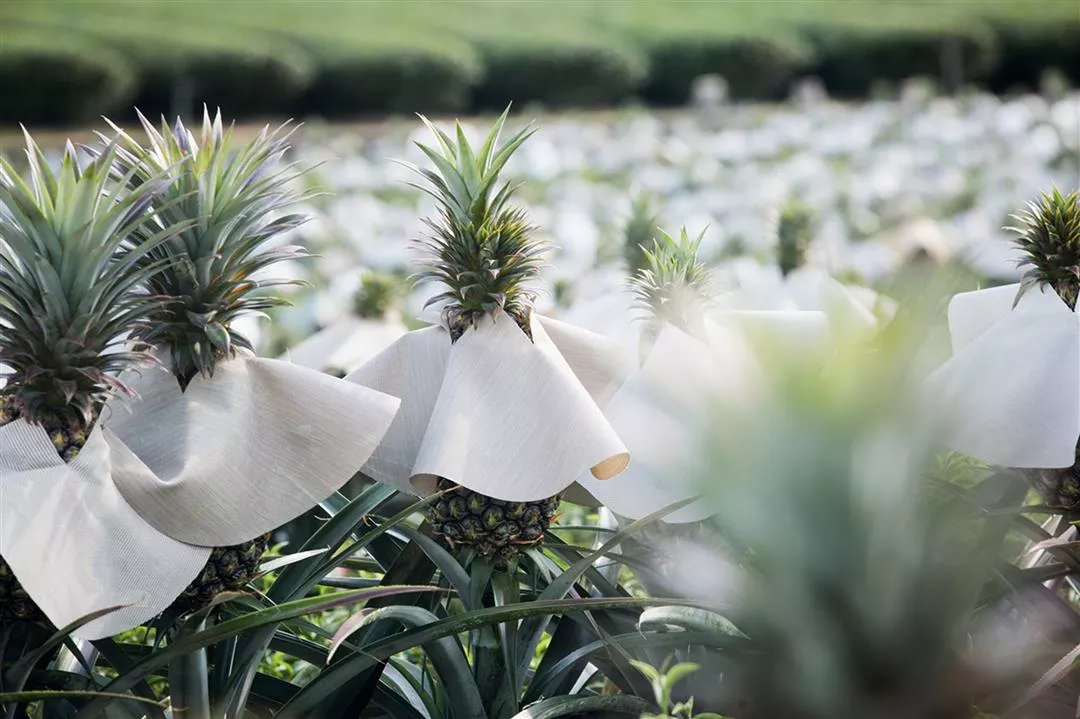
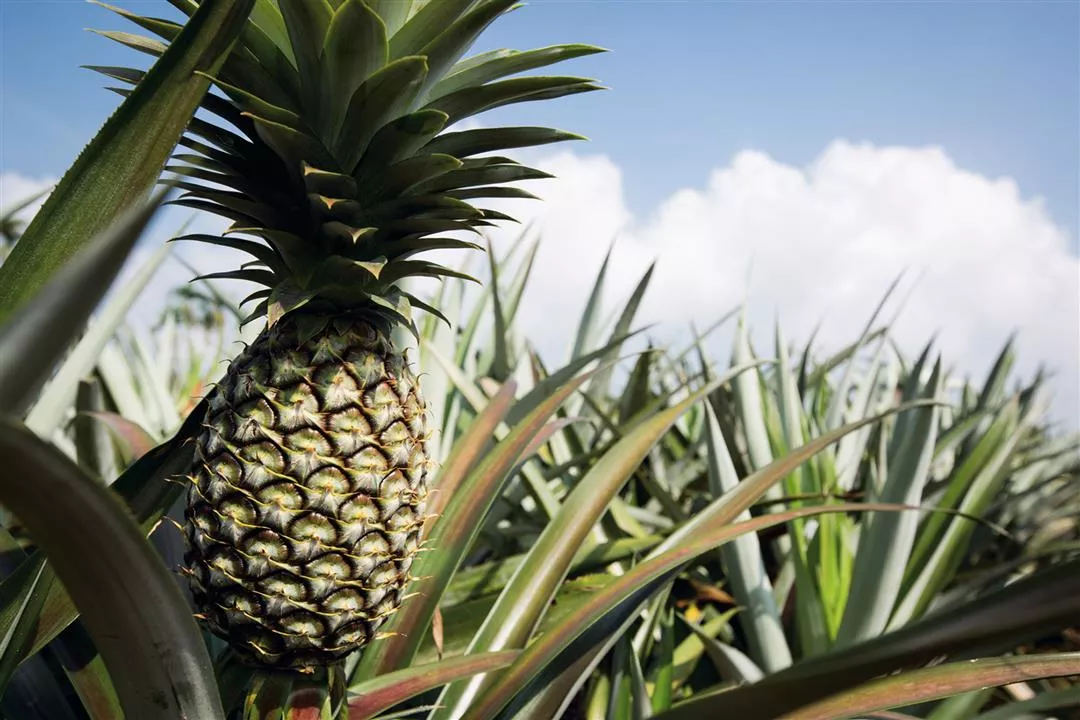
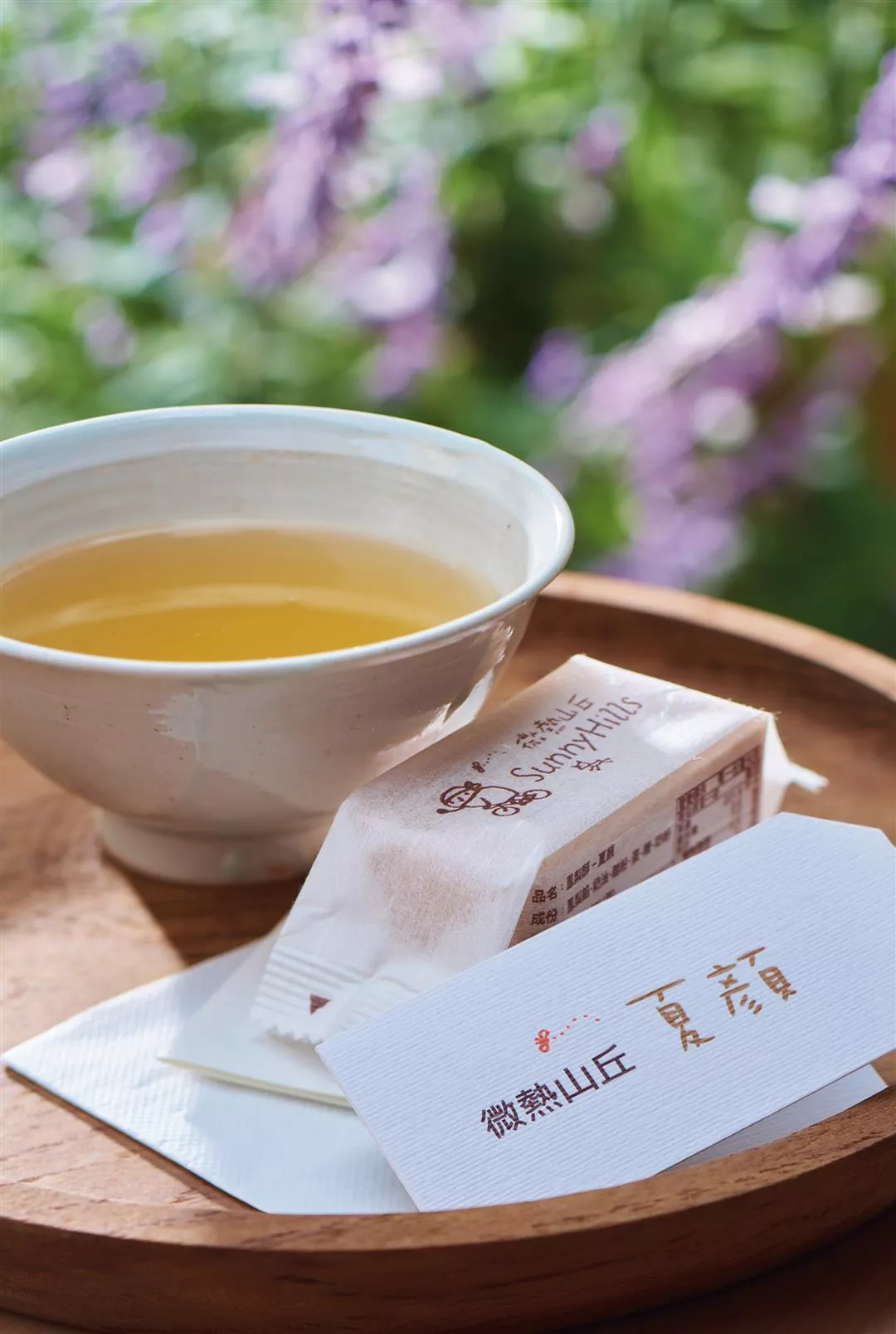
SunnyHills has earned part of its reputation through “downhome” hospitality: it offers every visitor to its stores a cup of tea and a pineapple cake.







@List.jpg?w=522&h=410&mode=crop&format=webp&quality=80)